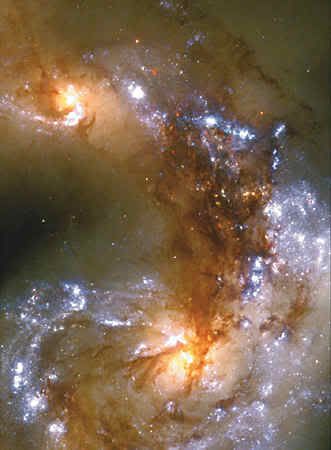
I argue that since eternal being can't be contingent it must be necessary. Many atheists tell me this is utterly illogical, but they do on assuming (I think) that there is some third choice or that contingency is just arbitrary.
This is actaully quote logical given the assumptions that I make:
(1) Necesity = That which cannot fail or cease to exist.
(2) Necessity = that which can fail or cease to exist.
(3) The other type of necessity is dependence for existence upon something prior or ontologically higher existent.
(4) both types of contingency are related given that 3 is the only concrete example we can give to explain why 2 would be the case.
(5) Necessity and contingency are the only choices for an existent.
I have argued the correct nature of the first four elsewhere. I would now like to demonstrate why assumption 5 is true.
Aside from Being and nothingness, the most basic categories that can ever been made concerning existence are these:
Necessity/impossibility
Contingency/ fiction
These can be subdivided But these are the most basic you can't draw up a fifth category. These take in all other matters related to existence. Note that impossibility and necessity are related. Impossible is just the "down side" or "negative" version of Necessary. That's why Hartshorne argues that God must be either necessary or impossible, because the concept of God rules out contingent.
Fictional is the negative of contingent. What all of this means is a thing can be either necessary or impossible, if it is not contingent. If it is contingent it can either be contingent or fictional. So functional things are contingencies that don't exist in the "real" world.
Examples:
Necessary: Being itself. It can't cease or fail to exist. This means something that is necessary has to be and it has to what it is, there are no circumstances through which it would have been different.
Impossible Meaning an impossibility cannot exist as a matter of logical self contradiction; there's a flaw at the base of the concept which contradicts and because of that it can't exist; example is square circles.
Contingent An existing thing that can fail or cease to exist. When we say it can fail it means the circumstances that produced could have been different and it would not have been; example would be one's parents. My mother could have married another man and I would not exist.
Fiction Something that does not exist but it could have, just doesn't happen to becuase the circumstances that would have produced it just didn't materialize; example, Huckleberry Finn. He was made up by Mark Twain but had there been people like his parents then he could have existed, there is no contradiction in the concept that would prevent his existence.
There are no other possibilities. This no fifth choice. Either a thing is necessary or it is contingent. If it is not contingent it can only be either impossible or necessary.
A fictional thing is contingent but it is non existent contingency, meaning if it did exist there would be no logical contradiction to it's existence but it fails to exist because the circumstances that would produce it failed to materialize. That's the negative side of contingency.
I call that "fictional."
Arguments
When I say being has to be necessary if it is not contingent, this is why I say so. Because it cant' be impossible or it wouldn't be being. It can't be functional or it would not be being, so it can only be N or c and if it not c then it must be N.
Naturalistic things are all contingencies. Atheists will always argue that this can't be proved. But they also can never give an example that contradicts the basic fact that all things we encounter in nature are always contingent. There are no counter examples.
They say QM particles.
While it is true that QMp's don't seem to have direct causal agents, they do require frameworks to be already in place; time, physical law and vacuum flux. That means they require prior conditions. So they are contingent.
The whole of the universe
They will say drawing the conclusion about the whole form the parts is fallacy of composition. Two answers.
(1) Logicians say that if the parts are all identical then the whole can be understood as derived from the parts and it is not the fallacy of composition. That means since the parts are all contingent then whole is contingent.
Example would be dominoes. you have a row of them and one falls they all fall down. You can't then say "but the whole is standing up, just because the parts are laying down doesn't mean the whole is standing." Well, yea, it does. The whole is not standing.
(2) Atheists would have to prove that the natural realm has to exist and can't be different than it is in order to show it's not contingent. There is no argument based upon empirical data that we can turn to that shows us that the natural world has to exist as it is.
Moreover the option of the universe just popping into existence out of nothing is illogical. We could point to a lot of reasons but the main one is there's no becoming in a timeless void. Total absolute nothing (the nothing it pops in from) would be timeless because time is something. Nothing could ever change if there was a timeless void.
Therefore eternal being must be necessary being.
The problem with connecting the dots and drawing the rest of the God attributes from being and then arguing "therefore God" is that atheists feel cheated because they are not willing to accept where logic takes us.

No comments:
Post a Comment